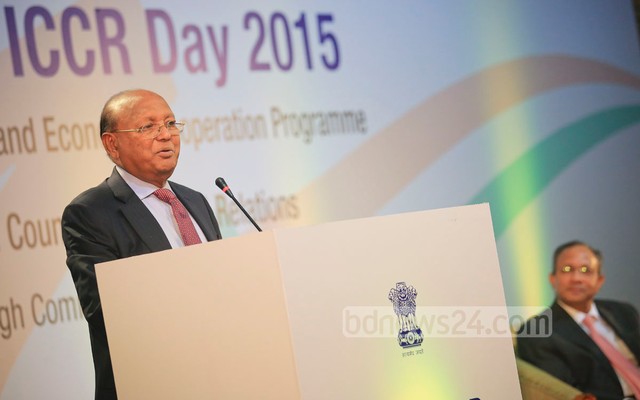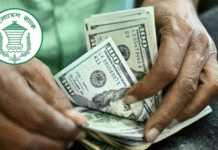Bangladesh has been benefitting by importing from India, Commerce Minister Tofail Ahmed has said while trying to assuage the critics of the bilateral trade gap, which is heavily in favour of New Delhi.
“India has given duty-free quota-free access to all out items except two — alcohol and tobacco. The trade (bilateral) is now close to $6 billion. It is in favour of India, but we are benefitting from this,” he said on Wednesday.
“If prices of any commodities become high, we import from India,” he said to drive home his point.
Indian High Commissioner in Dhaka Pankaj Saran was also present.
The minister was speaking at the celebration of the India’s scholarship programmes, the Indian Technical and Economic Cooperation (ITEC) and the Indian Council of Cultural Relations (ICCR) Day, in Dhaka.
Apart from those who studied in India under scholarship schemes, 400 youths who visited India in the last four years as part of 100-member youth delegation’s annual tour also attended the celebration.


Terming India-Bangladesh relations “very deep”, Ahmed said Prime Minister Narendra Modi’s recent visit took it to a new high.
He said both countries were engaged in every sector. But he lamented that some people only talk about trade gap.
Bangladesh had also trade gap with China, he reminded the critics and added that it was in favour of Bangladesh in case of trade with the US and the EU countries.
He said Indian investors would invest in Bangladesh in coming days as a special zone had been allocated for them.
“Indian government also agreed to give us some land,” he said, “our relation is in its peak”.
India draws a large number of young working professionals in the private and government sectors from across the world and trains them under ITEC as part of its foreign policy to improve relations with the neighbours.
The ITEC scholarship programme has been New Delhi’s flagship foreign training scheme since 1964. Bangladesh is one of India’s “principal ITEC partners”.
Some of the participants, mostly youths, of both ITEC and ICCR, shared their experiences of visiting and studying in India at the celebration.
One of them was Monowara Begum, an illiterate woman form the northern Sirajgang district.
She was sent by the Indian High Commission to Rajasthan’s Barefoot College for learning solar engineering.
“This has changed my life,” Begum said.


High Commissioner Saran said the scholarships programmes demonstrated the “enormous talent and potentials that Bangladesh has within its borders”.
“It is a celebration of your aspirations, ambitions and the great power that each and everyone has to transform the destiny of Bangladesh,” he told the alumni.
He said India’s relation with Bangladesh was the “most important and most critical” in the world.
“How this relationship progresses between India and Bangladesh will determine the destiny of not only the people of India, but also the people of Bangladesh”.
“You are truly the bridge of friendship and understanding between India and Bangladesh,” he said.
Since 2007, more than 2,500 students and professionals studied in India under the ITEC and ICCR programmes.
Source: Bd news24










